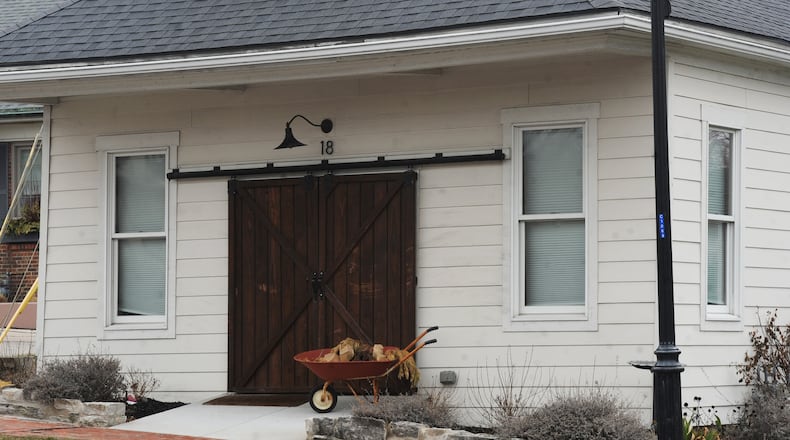“We’re proposing to allow those as a permitted commercial-use only in the Architectural Preservation District, which is essentially Centerville’s Uptown central business district,” Vanness told this news outlet.
Centerville’s Planning Commission voted 5-1 Tuesday to recommend approval of a text amendment to the city’s Unified Development Ordinance, or UDO. Centerville City Council on Monday is expected to schedule a March 18 public hearing on the matter during its regularly scheduled meeting. If it approves the text amendment, the new ordinance would go into effect 30 days later.
The city enacted a yearlong moratorium on new short-term rentals in November 2022, then approved a sixth-month extension in October 2023 “because staff wanted to be thoughtful and city council wanted to talk to residents,” said Centerville spokeswoman Kate Bostdorff.
The pause in new short-term rentals has given Centerville the opportunity to ensure it has “taken the pulse of the community” on the matter, Bostdorff said.
“We’ve just seen (short-term rentals) grow in popularity … over the past several years, and it’s something that city council wanted to address because they want to make sure we’re protecting the character of our neighborhoods where there is no commercial element currently,” she said.
The text amendment establishes a sunset provision for non-conforming short term rentals.
“Any short-term rental that exists outside the Architectural Preservation District would have a year to continue to operate to plan for essentially not being allowed to after that after that 12 months is expired,” Vanness said.
The city’s Architectural Preservation District is 95.8 acres and 337 total parcels, which is 1.35% of the city’s total area, he said.
Centerville’s existing short-term rentals are located either in Uptown in the Architectural Preservation District or in its single-family residential neighborhoods, Vanness said. “It seems there’s lack of guidance of where these were most appropriate,” he said.
Allowing short-term rentals in the city’s Uptown area aligns with the city’s Uptown Action Plan, which was approved in 2019, Vanness said.
“It’s an opportunity to introduce visitors and allow more lodging for visitors to come up to Uptown area and support those strategies that were outlined in that plan,” he said.
An Airbnb listing for South Main Street’s Carriage House in Historic Uptown Centerville, notes the city’s entertainment offerings, including live music on Friday evenings from May to August outside Graeter’s Ice Cream, summer concerts on Sundays at Stubbs Park and local restaurants.
Sol and Angi Gomez, the property’s owners, are self-described “raving fans” of Centerville and said the listing has proven to be a greater success than they’d hoped for.
Sol Gomez said he’s not opposed to the city having some regulatory control over short-term rentals, especially after negative experiences in other communities, but allowing them in business-heavy Uptown Centerville “makes sense.”
“It contributes to the business community there … and we’re all about supporting local business,” he said.
Various Dayton-area cities have looked into regulating, or have regulated, short-term rental properties from companies including Airbnb or VRBO after complaints from residents prompted lawmakers to address the issue.
Those communities have employed a variety of approaches, with some, having no regulations because of a lack of problems with short-term rental properties, or not enough Airbnbs in the city to justify the cost or effort of legislation. Other cities have a permitting process, and may charge hotel or motel tax, while some have enacted moratoriums to further examine short-term rentals or have banned them entirely.
This story includes reporting by staff writers London Bishop and Cornelius Frolik.
About the Author

